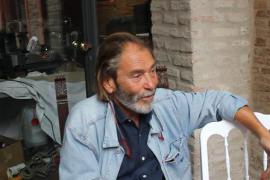On September 29, when the Turkish National Security Council decided to extend state of emergency rule by three months, 20 democrat and opposition TV channels and radios have been darkened and removed from the satellite provider TURKSAT with a decree-law by the Prime Ministry.
"They were mainly channels followed by the Kurds and the Alevis and this is a further sign that Turkey is no longer a democracy but an authoritarian regime that does not respect human rights and freedom of expression," said Cengiz Aktar, a Turkish writer and political analyst, guest at “Internazionale a Ferrara” Festival 2016.
Among the disabled televisions, there were Zarok TV, Turkey's first Kurdish-language children's channel, three others were in Kurdish, three bilingual and the remaining three in Turkish but considered leftist and pro-Kurdish. The initiative is part of the repressive measures taken after the attempted coup of July 15, which led to the dismissal or suspension of nearly 100,000 people in the army, in public services, in the police and the judiciary and to the arrest of almost 32,000 people for alleged involvement in the plot attributed to the followers of the preacher and Islamic ideologue Fetullah Gülen, leader of the Hizmet (Service) movement.
"The emotional wave that followed the failed coup has encouraged the spread of nationalism, most of the Turkish people is with the President and march in the streets waving national flags and chanting slogans in support of him, while the opposition is increasingly reduced to the margins. The pro-Kurdish HDP party is the only legitimate political movement that dares to challenge the power of the President, but but what can they do with five million votes cast in the last election? Not enough, and the HDP deputies are also under intense pressure after the lifting of the parliamentary immunity”, said Aktar, who months ago had warned against the attack on civil rights with the crackdown on independent media and political opponents after the victory of the ruling Justice and Development Party (AKP) in the November elections.
Pressure on freedom of expression intensified in late July with the decree imposing the closure of 45 newspapers, 15 magazines, 16 television channels, 23 radio stations, three news agencies and 29 publishers and distributors, for a total of 131 companies. "The news media shutdown shows how the state of emergency law is being used to deny the right to free speech beyond any legitimate aim of upholding public order", Human Rights Watch said. According to the Journalists’ Association of Turkey, in prison there are more than 100 journalists, while 2,500 lost their jobs and 660 were deprived of the press card.
"In these conditions you can no longer live in Turkey," Aktar said in an interview to Gariwo. The failed coup and the subsequent repression show that “in Turkey the coexistence between Islam and democracy failed, because the Turks were not strong enough and knowledgeable enough to really deepen this democracy and the Europeans were systematically pushing them up. And we will all pay for it. Turkey will have extreme difficulties to recover from the situation in which it fell. Besides, Islam didn’t manage to flourish or to transform itself. So there is hardly any movement like protestantism in Islam. There are of course sects or groups which advocates for a more liberal Islam, like the Alevis, but they don’t have the majority and in those places where they have, it doesn’t work either because it’s the problem of the relation of the religion with the State and as long as this linkage is not cut, you end up with problems. And in the name of Islam and in the name of Christianity they tend to exploit it, to strengthen their grip on the state. Religions are a problem, their power is a problem”.
The European Union has not reacted to the authoritarian turn in Turkey in the recent weeks, it merely confirmed the support for the "legitimate Turkish institutions". An attitude also influenced by the need to safeguard the agreement with Ankara to hold in Turkey 2.7 million Syrian refugees (UNHCR, Sept. 26 2016) and prevent them from arriving in Europe. "The EU is going through a moment of great weakness and has not fully understood the true gravity of the attempted coup and the government reactions," the French journalist Bernard Guetta of France Inter said during the debate in Ferrara.
Meanwhile, the Turkish authorities are still hunting down supporters of Gülen and have succeeded in suspending 12,801 police officers from duty, 2,523 of them police chiefs. The Minister of Justice Bekir Bozdag has not ruled out further arrests and did not indicate when the trials of tens of thousands of detainees will start. But one thing is certain: it will be the biggest legal process in Turkey's history.


